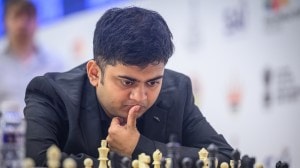He dared to break down silos,change national security discourse
K Subrahmanyam,who schooled three generations of bureaucrats,politicians,diplomats,scholars and spies,dies at 82.
K Subrahmanyam,who shaped Indias national security polices for more than four decades,passed away here today. He was 82.
Subrahmanyam advised all prime ministers starting from Indira Gandhi on foreign and defence policies and had a decisive impact on Indias nuclear strategy and national security management. Above all,he got India to appreciate the logic of power in international affairs.
As he boldly battled cancer in recent years,he summoned his innermost energies to persist in the promotion of critical thinking about Indias national security. He was determined to make a difference until the very last.
As India rises on the world stage,Subrahmanyams contribution in getting its security establishment to ponder the nature of power and its political purpose will long outlast him.
A relentless advocate of a powerful India,he was also strikingly detached from power and its many manifestations in the Delhi Durbar.
Unwilling to be co-opted by the allures of office and privilege,he spoke the truth to power,often risking his owncareer advancement.
His refusal to implement the draconian Emergency laws as Tamil Nadus Home Secretary in the mid-1970s underlined his strong sense of right and wrong.
In turning down the Padma Bhushan award some years ago,Subrahmanyam was affirming an unfailing capacity to distinguish between the ephemeral and the enduring.
His greatest reward was in schooling three generations of bureaucrats and politicians,diplomats and journalists,scholars and spies in thinking through the challenges of national security and in helping to construct contemporary Indias strategic community.
As a member of the Indian Administrative Service,which he joined in 1951,Subrahmanyam held many positions in the Indian establishment.
These included the head of the Kargil Review Committee,He dared to break down silos,change national security discourse Chairman of the Joint Intelligence Committee,Secretary Defence Production,Convener of the first National Security Advisory Board,and Director of the Institute for Defence Studies and Analyses.
His extraordinary influence on policy,however,did not derive from the bureaucratic positions he held. It came from the power of his intellect,the courage of his convictions,and a rare capacity to mobilise elite opinion.
Some of his peers used to describe Subrahmanyam as Swayambhu. With an intellect that was self-manifest,he did not need an official position make an impact on national security policy.
He was unaffected by the many political and ideological labels that were hurled at him so very often. His unremitting focus was on defining and promoting Indias national interest.
Because he understood the power of ideas,he was always ready to break the barriers of conventional wisdom. Subrahmanyam will be long remembered for rescuing the Indian world view from the intellectual confusion that reigned in Delhi after the death of Nehru. He injected much needed realism into Indias world view since the mid-1960s.
If he was utterly austere,totally upright and completely detached in his persona,Subrahmanyam was forbiddingly intense in any intellectual engagement.
As he became the unofficial intellectual spokesman for Indias policies in the 1970s and 1980s,his foreign interlocutors were often unnerved by his ferocious debating style.
Those who got to know him a little better figured out that there was nothing personal in his policy contestations. All that mattered to him was the advancement of Indias interests. No wonder he leaves a large number of admirers around the world.
Just as he was prepared to question the opinions of his seniors,Subrahmanyam was ready to engage his junior-most colleagues in any argument.
A child-like curiosity and openness to new ideas never deserted him. They made him young at heart until the very end of his life.
Subrahmanyam always insisted that real power was not about holding office,but affecting change in the policies and mindsets of the Indian system. Nowhere was this more evident than in Indias nuclear thinking that he changed single-handedly.
Stepping into the great Indian nuclear debate after Chinas first nuclear test in 1964,Subrahmanyam mounted a successful campaign to prevent India from signing away its nuclear weapon option by joining the Nuclear Non-Proliferation Treaty.
Calling atomic weapons the currency of international power,he became the foremost proponent of India exercising its nuclear option.
Yet,he did not turn nuclear weapons into a fetish. When Rajiv Gandhi ordered the building of nuclear weapons in the late 1980s,Subrahmanyam was instrumental in drawing up a strategy of restraint.
He emphasised the irrelevance of American and Soviet nuclear doctrines and insisted that India must focus on building a limited but credible deterrent.
One of his greatest passions was the reform of Indias security sector. His consistent advocacy resulted in the creation of the National Security Council system in 1998.
While many of his contemporaries tended to repeat the old foreign policy mantra after the Cold War,Subrahmanyam sought to recalibrate Indias premises to the changed international context.
A strident critic of US policies during the Cold War,Subrahmanyam was the first to see the opportunity to build a new partnership with the United States in the last two decades.
His enthusiastic support for the controversial civil nuclear initiative during 2005-08,was critical in tilting the balance in favour of the Indo-US deal.
He transformed Indias national security discourse by breaking down the separate silos that once dominated the landscape. When he started writing on foreign and defence policies in the 1960s as the Director of IDSA,he confronted resistance from many official quarters.
The Foreign Office,the Defence Ministry and the Service headquarters were all outraged by the young IAS officers temerity to write on subjects that were considered beyond public discourse.
If academia was irritated at a civil servants foray into the study of war and peace,it was appalled at Subrahmanyams prolific writing for the popular press.
The persistent effort to create a strategic community,an unending quest for an efficient national security policy,and the rich imagination of a strategy to claim Indias rightful place in the world,make Subrahmanyams intellectual legacy a lasting and formidable one.



- 01
- 02
- 03
- 04
- 05




























